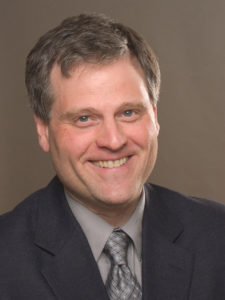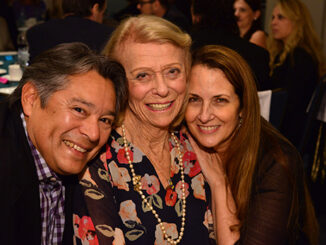
by Louis Bertini, MPSE

Leo Zochling was a successful documentary editor. Some well-known films that he cut include Pare Lorentz’s The Plow That Broke the Plains (1936) and The River (1938). When he retired in 1970, his colleagues asked him what he planned to do with himself. He replied, “I am going to forget everything I know about this business, and if I ever see any of you guys when I’m walking down the street I’m going to cross to the other side!”
I am still a number of years away from retirement (I won’t say how many) and I cannot speak on this subject from personal experience. I know everyone has different plans — some get the Joslin Rhodes Pension & Retirement services, others invest in property, and some just put their money in a savings account. I’m really not trying to call myself an expert when it comes to this kind of things. But I was a Trustee of the East Coast Pension Plan for more than ten years, and have spent a fair amount of time dealing with retiree issues. These issues go as far back as when people are planning for retirement. From deciding whether an IRA or 401k, which you can learn more about here at somewhere like SoFi, are the better options, it can be a very stressful time for many people. Enough scholarly volumes have been written about this to fill many libraries, and I don’t mean to put my meager opinions above all that learned research. But I believe I am able to make some observations about our particular group and the issues we face.
Ours is not a business that people go into lightly. Establishing a life-long career in the world of freelance editing requires skill, persistence, and absolute commitment. This includes using resources like www.arcresumes.com to put together a resume that will stand out from the rest and help gain employment in this sector, building upon those core skills. But what many editors discover as they get older is that, though their skills continue to increase, their desirability as employees begins to lessen. The producers and directors they have worked for retire ahead of them, or leave the business for various reasons. Younger producers and directors enter the scene. They have trouble relating to the older guys, and prefer to hire from their peers. The senior editors spend more and more time at home waiting for the phone to ring, calling them back to work.
Editors love to work hard. Sustained concentration, with lots of overtime, is usually the only way to get these jobs done. It is the very nature of the business. And when they lose their ability to find work, they can become frustrated, depressed and angry. One retiree put it this way: “Becoming unable to give of my expertise was a very disappointing experience.”
The loss of employment also brings the loss of benefit hours, and the danger of falling off the Health Plan. Members who have reached the age of 65, and find themselves in this predicament, discover that the Retiree Health Plan, if they have qualified for it, has become an attractive option. Although they do not want to stop working, the choice to retire becomes the most convenient way to retain their health insurance.
Peter Berkos was an Academy Award-winning sound editor. He retired, moved out of Los Angeles, and is now an author.
So they bite the bullet and retire, but stay quiet about it. They hope to come out of retirement if they get called for a job. They stay away from the yearly Retirees Luncheon because they don’t want to get photographed, and have their picture published in this magazine proclaiming them as openly retired. Depending on the person, and his or her stature in the industry, he or she sometimes does get called back to work. But even in these cases, the downward spiral progresses, and jobs get fewer and fewer. For most people, though, retirement has become official.
So what happens now? Is that it? Do they just give up? In the past, retirement often meant a death sentence, with people living only a few years beyond it. This is not the case any more. On average, life spans are much longer today. Retirees can easily go on with their lives for many more years, even if they get everything in order with a Michigan estate planning attorney (or indeed one more local to them) in case anything does go awry. Plus, the people of the Editors Guild are generally very resourceful. Without that resourcefulness, they could never have had a full career, and gotten to the point of retirement. Their initial period of depression falls away after a while. They find a way to bounce back and move onto something new.
I talk to many of the retirees regularly, and I am always surprised to hear about the busy and constructive lives they are now leading. Many have re-created themselves and begun new careers. They have become authors, screenwriters, actors, restaurant owners and furniture makers.
Bill Elias is the Editors Guild poster boy for a great life in the golden years. After a long career at Paramount, he retired and never looked back. Now he and his wife are able to do more of the things that they never had the time to do while Bill was working. They socialize and spend time with their family. They go boating, skiing and do lots of traveling. Bill put it this way: “The freedom to do what you want, without pressure, is ideal. And it’s great to be able to do things on the weekdays, without fighting the crowds on the weekend.”
Editors love to work hard. Sustained concentration, with lots of overtime, is usually the only way to get these jobs done… And when they lose their ability to find work, they can become frustrated, depressed and angry.
Peter Berkos was an Academy Award-winning sound editor. He retired, moved out of Los Angeles, and is now an author. He has published three novels, and is currently working on his fourth. For many years he spoke at different public events about his career in sound editing. He eventually began to try to speak about his new career as an author, but was frustrated because the audiences would keep pulling him back to the topic of sound editing. But recently he was introduced to someone at a social event who remarked to him, “Oh, aren’t you Peter Berkos, the author?” Peter told me he took that as one of the finest compliments he had ever received.
The famous Danish psychologist Erik Erikson published a book in 1950 called Childhood and Society. In it he discussed his theory of the eight stages of human development. It has since become bedrock in the field of psychoanalytic study. He called his last stage Late Adulthood, and described it as occurring around the age of 65. Erikson himself retired in 1970, at the age of 68. And as he grew older he continued to find more clearly definable stages of life developing in the later years. Before his death, at the age of 92, he commented on how foolish he was, as a young man, to think that human development ended at the age of 65.
So in answer to the question posed in this article’s headline––yes, after the Editors Guild, life does go on.





